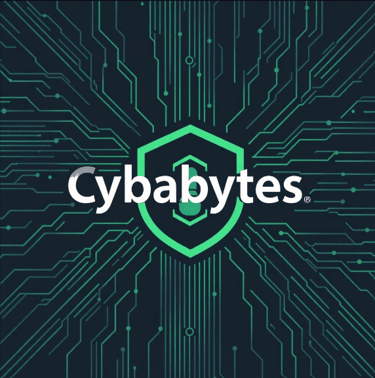🛡️ The General Data Protection Regulation (GDPR):
A Game-Changer in Data Privacy
📢 Introduction
The General Data Protection Regulation (GDPR) is not just another compliance checklist—it’s a revolutionary data privacy law that reshaped how organizations handle personal information. Enforced by the European Union (EU) on May 25, 2018, GDPR replaced the outdated Data Protection Directive 95/46/EC and set a global benchmark for data security and transparency.
But what makes GDPR so significant? It doesn’t just apply to EU-based businesses—it impacts any organization worldwide that processes the personal data of EU citizens. This means that whether you’re a tech giant in Silicon Valley or a small online retailer in Tokyo, GDPR likely applies to you!
🔑 The Core Principles of GDPR
At its heart, GDPR revolves around seven key principles that dictate how personal data should be handled:
📜 Lawfulness, Fairness, and Transparency – Organizations must process data legally, ethically, and openly.
🎯 Purpose Limitation – Data collection should have a clear, specific goal and not be used for anything else.
📉 Data Minimization – Only collect the bare minimum required for the task.
✅ Accuracy – Ensure personal data is up-to-date and correct at all times.
⏳ Storage Limitation – Data should not be kept longer than necessary—no hoarding!
🔐 Integrity and Confidentiality – Security is key! Protect data from breaches, leaks, and unauthorized access.
📊 Accountability – Companies must prove they’re GDPR-compliant, not just claim it.
👤 Empowering Individuals: Data Subject Rights
GDPR isn’t just about businesses—it puts individuals in control of their data. Here’s what that means for you:
📂 Right to Access – Want to know what data a company has on you? Just ask!
✏️ Right to Rectification – Found incorrect or outdated information? Get it fixed.
🗑️ Right to Erasure (‘Right to be Forgotten’) – Request the deletion of your data when it’s no longer needed.
⏸️ Right to Restrict Processing – Pause or limit how your data is used.
🔄 Right to Data Portability – Transfer your data easily between services.
🚫 Right to Object – Say no to unwanted data processing, including marketing.
🤖 Rights Related to Automated Decision-Making – If a system makes automated decisions about you, you have the right to request human oversight.
⚖️ Who’s Responsible? Data Controllers vs. Data Processors
Under GDPR, there are two key roles in data processing:
🧑💼 Data Controller – The organization that decides why and how personal data is processed.
💾 Data Processor – The entity that handles data on behalf of the controller (e.g., cloud service providers).
Both must comply with GDPR, but controllers bear the ultimate responsibility for ensuring data is handled correctly.
📜 Is Data Processing Always Legal? Establishing Lawful Basis
Before handling personal data, organizations must establish a lawful reason for doing so. GDPR recognizes six legal bases:
✅ Consent – The individual has given clear permission.
📃 Contractual Necessity – Processing is necessary to fulfill a contract.
⚖️ Legal Obligation – Required by law (e.g., tax records, employment details).
🏛️ Legitimate Interests – A company’s valid reason for processing data, provided it doesn’t override individual rights.
🏥 Public Task – Necessary for government or public interest functions.
❤️ Vital Interests – Required to protect someone’s life or safety.
🚨 Data Breaches: Act Fast or Pay the Price
GDPR is serious about data security. If a data breach occurs, companies must: ✔️ 📩 Report it to the relevant authority within 72 hours if personal data is exposed. ✔️ 📢 Notify affected individuals if the breach poses a significant risk.
Failing to comply can lead to hefty fines and irreversible damage to a company’s reputation.
💰 The Cost of Non-Compliance: Penalties and Fines
Break the GDPR rules, and you’ll pay—literally.
💸 Up to €20 million or 4% of annual global revenue (whichever is higher) for severe violations.
💸 Up to €10 million or 2% of revenue for less serious infractions.
Even tech giants like Google, Meta, and Amazon have been slapped with multi-million-dollar fines for GDPR breaches. No one is exempt!
🔥 Where GDPR Gets Even More Interesting
GDPR isn’t just about rules—it’s changing the way businesses and governments handle data worldwide. Here are hot topics worth diving into:
🌍 GDPR and Global Business – How companies outside the EU comply with GDPR.
⚙️ How to Implement GDPR Compliance – Practical steps organizations take to stay on the right side of the law.
🕵️ Data Protection Officers (DPOs) – Who they are and why companies need them.
🤖 GDPR’s Impact on AI and Big Data – How modern technology fits into privacy regulations.
⚖️ GDPR vs. Other Privacy Laws – How it compares to CCPA, HIPAA, and China’s PIPL.
⚠️ Biggest GDPR Fines So Far – Real-life cases of companies getting penalized.
📢 GDPR in Marketing – How businesses navigate consent and targeted advertising.
🧑💻 Employee Data and GDPR – How HR teams manage personal information.
🚀 Final Thoughts: Why GDPR Matters
GDPR isn’t just another legal framework—it’s a global movement towards data privacy and security. Whether you’re a business owner, IT professional, or just a regular internet user, understanding GDPR helps you navigate the digital world safely and responsibly.
Want to dive deeper into any of the subtopics above? Let me know, and we’ll explore them together! 🔍
